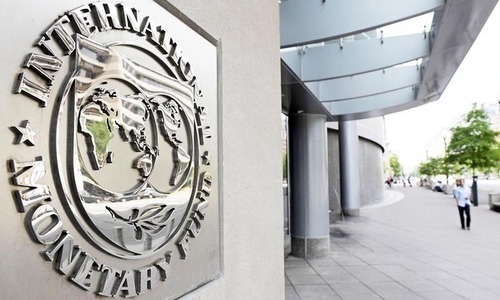ISLAMABAD: The government has given an undertaking to the International Monetary Fund (IMF) to immediately increase natural gas and electricity tariffs and conduct deeper scrutiny of foreign-funded projects to reduce increasing risks to fiscal and external accounts.
The two sides have conceded that limited progress could be achieved in the short time left in the tenure of the government to pursue structural reforms and improve bleeding public sector entities but agreed that procedures could be completed in this regard to move quickly at an opportune time.
While the IMF expressed concern that Pakistan’s debt profile, despite improvements in recent years, was deteriorating to touch around 70 per cent of GDP but authorities were optimistic about the impact of recent policy measures.
Fund expresses concern over deteriorating debt profile
This is part of the detailed post-programme monitoring report of the IMF released on Wednesday after clearance from the Government of Pakistan.
“In this context, (the IMF) staff welcomed the authorities’ plans to revisit the current cross-subsidisation arrangements and notify higher tariffs in the gas sector to ensure adequate cost recovery”, read the IMF report.
The government conceded external sector vulnerabilities but offered a more optimistic assessment of the capacity to repay. They thought that with the recent depreciation, equilibrium had been restored in the foreign exchange market, helping to address any medium-term financing gaps.
Based on the authorities’ projections of a stronger economic response to their policy measures, they expected continued positive investor confidence and access to external financing, with gradually improving reserve coverage over the medium term.
The IMF called for strengthened fiscal discipline to reduce debt-related vulnerabilities and rein in the current account deficit and despite the pre-election period, the IMF recommended complementing the positive revenue performance with an early introduction of additional measures to contain this year’s budget deficit to 5pc of GDP.
This could be achieved with further elimination of tax concessions and exemptions (0.3pc of GDP), raising of petroleum taxes, withholding taxes and excises (0.1pc of GDP), and containing current expenditure (0.1pc of GDP). The IMF staff urged decisive short-term actions to contain quasi-fiscal losses in PSEs and welcomed the government intentions to notify revised electricity tariffs to help contain build-up of power sector arrears.
The IMF also urged faster implementation of other components of the circular debt reduction plan (including continued efforts toward improving distribution companies’ losses and collections). The IMF also recommended additional electricity surcharges to facilitate cost recovery until the underlying structural issues are tackled. It emphasised the urgency to arrest losses by Pakistan International Airlines (PIA) and Pakistan Steel Mill (PSM).
The authorities viewed the current fiscal and monetary policy stances as adequate.
They agreed with the need to contain the fiscal deficit to 5pc of GDP. They expected this target to be attainable on current policies, while indicating a willingness to take additional policy measures should the need arise.
The authorities broadly agreed with the policy priorities for ailing public enterprises and the need to strengthen electricity distribution companies’ financial performance and to notify updated electricity tariffs. They were hopeful that a new plan to restructure and seek private participation in PIA would help improve its financial performance. “They are also actively considering options to privatise PSM”.
The IMF called for careful phasing in of new external liabilities and strengthening of external buffers to complement short-term efforts to strengthen external sustainability.
Considering the significant increase in external financing needs in the coming years, the fund recommended caution when considering the assumption of new external liabilities now that the most urgent energy supply shortfalls have been addressed. In parallel, saving foreign exchange proceeds from additional external borrowing will be important to improve resilience and ensure medium-term sustainability.
The authorities broadly agreed with these priorities and agreed to increase the scrutiny of the terms of new foreign-financed projects and to minimise the role of imported fuel in energy sector projects. They underscored that achieving higher exports will be important for sustainable growth and external sector resilience.
The government also concurred with the need for further fiscal consolidation through the medium term, in part driven by raising more revenue through broadening of tax bases and improving fiscal federalism framework, while noting the constitutional constraints and the need for extensive consultations with the provinces, which may limit the range of politically feasible reforms.
The IMF put Pakistan’s public and publicly guaranteed debt at 69.7pc of GDP by the end of current fiscal year, close to the level of the previous fiscal year (70pc of GDP), while public debt excluding guarantees was about 67pc of GDP.
Debt levels are higher than envisaged in the debt sustainability analysis under 2017 article IV consultations, largely reflecting the significantly higher fiscal deficit (by 1.3pc of GDP), due to revenue underperformance and a sizable increase in provincial development spending. Net public debt also increased to around 62pc of GDP. Public and publicly guaranteed debt has been projected to remain close to 70pc of GDP by 2023 under the baseline.
Published in Dawn, March 16th, 2018













































